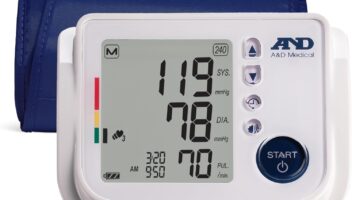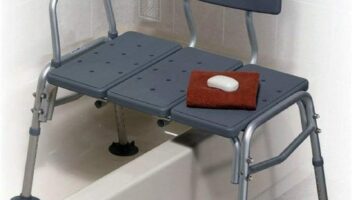Understanding Agoraphobia Symptoms and Finding Hope
Living with agoraphobia can feel like navigating a maze with no exit. I remember the first time I felt that overwhelming dread when stepping outside. It’s as if the world transforms into an intimidating place, filled with unknown threats. In this blog, we’ll delve into the symptoms of agoraphobia, share personal insights, and discuss how online therapy can be a beacon of hope for many.
What is Agoraphobia?
Agoraphobia is more than just a fear of open spaces; it’s a complex anxiety disorder. It often manifests when individuals fear situations where escape might be difficult, or help isn’t readily available. This leads to avoidance behaviors that can confine people to their homes. Think of it as a protective shell that, while initially comforting, can become suffocating over time.
Recognizing the Symptoms
Identifying the symptoms of agoraphobia is crucial for those who may be suffering silently. While everyone experiences anxiety differently, here are some common symptoms many people report:
- Fear of leaving home: The idea of stepping outside can evoke feelings of panic or dread.
- Panic attacks: Many people experience sudden episodes of intense fear that may include heart palpitations, shortness of breath, or feelings of impending doom.
- Avoidance of certain places: You might start avoiding crowded places, public transportation, or even getting into a car.
- Feeling trapped: A pervasive sense of being trapped, unable to escape situations, can lead to a feeling of helplessness.
- Physical symptoms: Dizziness, nausea, and rapid heartbeat can manifest when faced with anxiety-inducing situations.
- Relying on a safe person: Many develop a dependence on a trusted friend or family member to accompany them during outings, which can reinforce the avoidance behavior.
I once found myself in a situation where I had to attend a family gathering. The moment I thought about the crowd, my stomach churned, and I felt an overwhelming urge to cancel. But what struck me is how isolating this experience can be. Often, we believe we’re alone in our suffering, but the truth is, many face similar challenges.
The Hope of Online Therapy
If you resonate with any of the symptoms mentioned, know that there is hope. Online therapy can be a game changer for those dealing with agoraphobia. It offers several benefits, making it more accessible and manageable for many:
- Convenience: You can have therapy sessions from the comfort of your home, making it easier to engage without the added stress of travel.
- Flexible scheduling: Online therapy often provides more flexible appointment times, allowing you to find a time that fits your routine.
- Anonymity: For many, sharing personal struggles feels safer online, which can lead to more open and honest conversations with therapists.
- Wide range of specialists: You can connect with a variety of mental health professionals, ensuring you find someone who understands your specific needs.
If this sounds like something you might benefit from, consider exploring online therapy options now. Check out this link for professional support with agoraphobia treatment: Agoraphobia Treatment Online.
A Personal Journey
Healing from agoraphobia isn’t just about facing fears head-on; it’s also about understanding oneself. During my journey, I found journaling to be incredibly helpful. Putting my thoughts on paper allowed me to process my feelings and track progress. I would write about my experiences, the situations that triggered anxiety, and even the small victories, like stepping outside for five minutes.
Sharing these entries with my therapist during our sessions brought immense clarity. It helped to articulate what I was feeling, which is often one of the hardest parts of the healing process. Online therapy meant I could easily share these reflections through messaging or video sessions without the pressure of face-to-face interactions at first.
The Path to Recovery
Recovery from agoraphobia is not a linear journey; there are ups and downs. Some days, simply stepping out onto the porch can feel monumental. Other days, the fear may creep back in. And that’s okay. It’s important to celebrate the small victories and to understand that seeking help is a sign of strength.
Engaging with self-help techniques can also aid in managing symptoms. Consider these strategies:
- Gradual exposure: Start small and gradually increase your exposure to the outside world. It’s about building confidence and resilience.
- Mindfulness and relaxation techniques: Breathing exercises, meditations, or yoga can help alleviate anxiety and ground you in the present.
- Connect with others: Joining online communities or support groups can reduce feelings of isolation. Sharing experiences with others who truly understand can be comforting.
Finding Your Support System
While online therapy can provide significant help, having a support system is equally important. This can be as simple as confiding in a trusted friend or family member about your feelings. I remember leaning on my best friend during tough times. Just having someone listen made a world of difference, reminding me I wasn’t alone in this battle.
As you embark on your journey to recovery, know that you don’t have to face this alone. There are communities, therapists, and resources ready to support you.
Final Thoughts
Agoraphobia can be a daunting challenge, but understanding its symptoms and actively seeking help can pave the way for recovery. Remember that every small step taken is progress, and online therapy can be a valuable ally in your journey. So why not explore the options available to you today? Your brighter tomorrow awaits: Find Agoraphobia Treatment Online.
Don’t hesitate to reach out for the support you need. There’s hope, healing, and the world ready to embrace you once again. 🌟
Disclosure:
Hospitals.net is a participant in the Amazon Services LLC Associates Program, an affiliate advertising program designed to provide a means for sites to earn advertising fees by advertising and linking to Amazon.com, .ca, .co.uk, etc.
AI Disclaimer:
Hospitals.net uses artificial intelligence (AI) tools to assist in gathering and summarizing product information, including reviews and other relevant data for Amazon products and services. While we strive to ensure the accuracy of the information provided, AI-generated content may not always reflect the most up-to-date or accurate details. The information on our site should not be considered professional advice, and users are encouraged to verify any product details directly with Amazon or other official sources before making a purchase.
We do not guarantee the completeness or accuracy of the AI-generated content and are not liable for any discrepancies or errors. Any reliance on the information provided is at the user’s own risk. By using this site, you acknowledge that product availability, pricing, and other details may change over time, and Hospitals.net is not responsible for these changes.
Health Disclaimer:
The health products and information provided on Hospitals.net are for informational purposes only and are not intended to substitute professional medical advice, diagnosis, or treatment. Always consult a qualified healthcare provider or medical professional before using any health products or following any advice you find on this site. The content on Hospitals.net, including product recommendations and reviews, is not a substitute for individualized care from a healthcare provider.
We make no warranties or representations regarding the effectiveness, quality, or safety of the products listed on our site. Any use of these products is solely at your own risk. Hospitals.net is not liable for any harm, injury, or adverse effects that may result from the use or misuse of the health products or information provided.
Please read all product labels, warnings, and directions provided by the manufacturer before using any product. If you have any questions about a product or its suitability for your condition, we recommend contacting the manufacturer directly or consulting a healthcare professional.
If you have any concerns regarding the accuracy of the information on this site, please contact us for further clarification.



